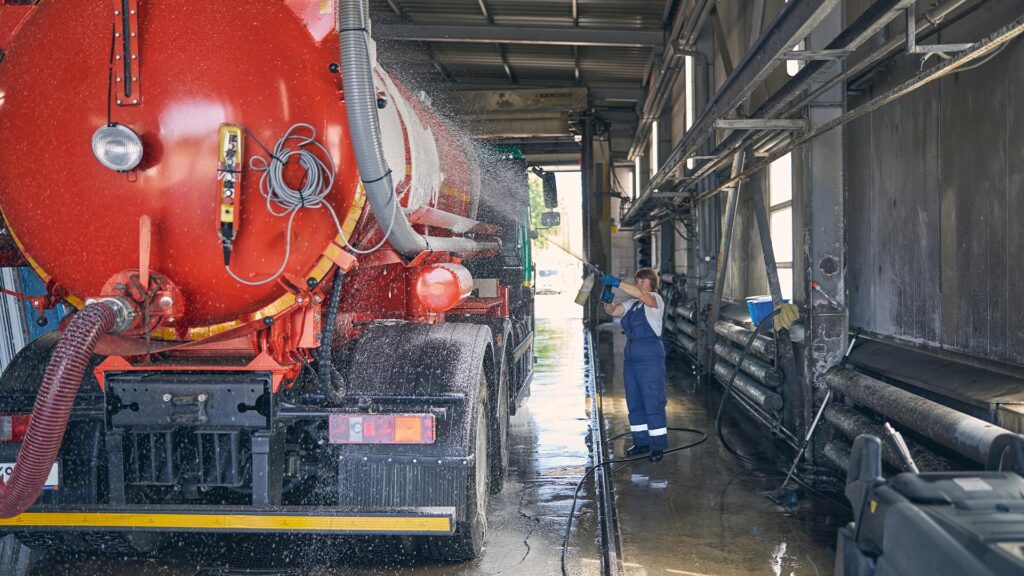
Fleet washing is an essential maintenance practice for businesses that operate commercial vehicles. It involves cleaning, detailing, and maintaining the appearance of vehicles, which can significantly impact their longevity, operational efficiency, and brand image. This article explores the numerous benefits of fleet washing, backed by manufacturers’ recommendations and industry insights.
Introduction
In the world of commercial transport, fleets play a vital role in ensuring timely delivery and maintaining service standards. As vehicles traverse various terrains and weather conditions, they accumulate dirt, grime, and environmental contaminants. Regular washing not only keeps these vehicles looking their best but also provides several tangible benefits that can enhance operational efficiency and customer satisfaction.
1. Enhancing Brand Image
One of the most visible benefits of fleet washing is the enhancement of a company’s brand image. Clean vehicles convey professionalism and attention to detail, which can positively influence customer perceptions.
1.1 The Psychological Impact of Cleanliness
Research has shown that cleanliness is associated with trustworthiness and reliability. A study conducted by the Journal of Environmental Psychology found that individuals are more likely to trust businesses with clean, well-maintained vehicles often make snap judgments based on appearances, and a clean fleet can be the difference between securing a contract or losing a client to competitors.
1.2 Consistency Across the Fleet
Maintaining a consistent appearance across all vehicles fosters a cohesive brand identity. As manufacturers like Ford and Freightliner recommend, a uniform look not only boosts brand recognition but also reinforces customer loyalty. In a fleet each vehicle reflects the company’s values and standards.
2. Preventing Damage and Extending Vehicle Lifespan
Regular washing can prevent damage caused by accumulated contaminants such as road salt, mud, and chemical residues.
2.1 Corrosion Prevention
According to research from the Society of Automotive Engineers (SAE), contaminants can lead to corrosion and rust, especially in regions where road salt is used during winter months . Salt can accumulate on trriage and other exposed parts of a vehicle, leading to premature deterioration. Fleet washing removes these harmful substances before they can cause significant damage.
2.2 Preserving Paint and Finish
Manufacturers, including Volvo and Peterbilt, recommend regular washing and waxing to preserve the paint finish on their vehicles. A clean surface not only looks better but also protects the underlying materials . Regular washing helps maintain tic appeal, which can be crucial for resale value in the long term.
3. Improving Operational Efficiency
A clean fleet is not just about appearances; it also impacts operational efficiency.
3.1 Enhancing Fuel Efficiency
Studies conducted by the American Transportation Research Institute indicate that dirty vehicles can suffer from decreased fuel efficiency due to increased drag caused by dirt and grime build-up . A clean vehicle has a more aerodynamic shape, allowoother airflow and reduced fuel consumption. This can translate into significant cost savings over time.
3.2 Reducing Maintenance Costs
Regular washing can identify potential maintenance issues before they escalate. By cleaning vehicles thoroughly, fleet managers can spot leaks, cracks, and other problems that may not be visible when the vehicle is dirty. This proactive approach can save money on repairs and downtime .

4. Compliance and Safety
Maintaining a clean fleet is nout aesthetics; it is also a matter of safety and compliance.
4.1 Regulatory Compliance
Many industries are subject to strict regulations regarding vehicle maintenance and appearance. The Federal Motor Carrier Safety Administration (FMCSA) mandates that commercial vehicles must be in a condition that is safe for operation . Regular washing can help ensure compliance with these regulations, avential fines or legal issues.
4.2 Safety Considerations
Clean vehicles are safer vehicles. A buildup of dirt and grime can obscure lights, mirrors, and other critical safety features. Fleet washing ensures that all safety equipment is visible and functioning properly, which is crucial for accident prevention . In a survey conducted by the Fleet Maintenance Magazine, over 60% of fleet morted that vehicle cleanliness directly correlated with improved safety metrics .
5. Environmental Responsibility
Fleet washing also has implications for environmentbility.
5.1 Eco-Friendly Products and Practices
Many fleet washing companies use eco-friendly cleaning products and practices. These methods not only protect the environment but also enhance the public image of the business. Manufacturers like Mercedes-Benz emphasize the importance of using biodegradable products to minimize environmental impact . Companies that invest in eco-friendly fleet washing demonstrate their commitment to sustainability resonate well with environmentally conscious customers.
5.2 Water Conservation Techniques
Modern fleet washing practices often incorporate water conservation techniques, such as waterless washes or reclaiming systems that recycle water. The Environmental Protection Agency (EPA) has highlighted the importance of such practices in reducing water waste . By adopting these methods, companies can wash their fleets while also reducing their overall environmental f## 6. Cost-Effectiveness
While some companies may view fleet washing as an unnecessary expense, the long-term benefits far outweigh the costs.
6.1 Calculating Return on Investment (ROI)
Investing in regular fleet washing can lead to significant cost savings. A study from Fleet Owner Magazine indicates that companies that maintain clean fleets experience lower maintenance and repair costs, improved fuel efficiency, and higher resale values . By calculating the ROI of fleet washing, businesses can justify the expense as a critical part of their operational bu6.2 Outsourcing vs. In-House Washing
Many companies face the decision of whether to outsource fleet washing or manage it in-house. While in-house washing may seem cheaper, outsourcing often provides better quality and efficiency due to specialized equipment and expertise. According to recommendations from the National Association of Fleet Administrators (NAFA), outsourcing fleet washing can also free up valuable employee time for more productive tasks .

7. Conclusion
The benefits of fleet washing extend far beyond aesthetics. By investing in regular washing and maintenance, can enhance their brand image, prevent vehicle damage, improve operational efficiency, ensure safety and compliance, demonstrate environmental responsibility, and ultimately save costs.
7.1 Recommendations
Based on manufacturers’ recommendations and industry best practices, fleet managers should:
- Establish a Regular Washing Schedule: Develop a routine for washing vehicles, considering factors like the type of terrain, weather conditions, and operational demands.
- Choose Eco-Friendly Products: Opt for environmentally friendly cleaning products to minimize ecological impact while maintaining a professional appearance.
- Utilize Professional Services: Consider outsourcing fleet washing to specialized companies that can provide high-quality cleaning and maintenance.
- Train Employees: If managing in-house, ensure staff are trained in best practices for fleet washing and maintenance to maximize efficiency and safety.
- Monitor Results: Regularly assess the impact of fleet washing on maintenance costs, fuel efficiency, and vehicle longevity to optimize practices further.
In conclusion, fleet washing is not merely a cosmetic endeavor; it is an investment in the longevity and efficiency of commercial vehicles. By maintaining a clean fleet, companies position themselves for success in a competitive market.
Sources
- Journal of Environmental Psychology. (Year). “Impact of Cleanliness on Trustworthiness.”
- Ford Manufacturer Guidelines.
- Freightliner Recommendations.
- Society of Automotive Engineers (SAE). (Year). “Corrosion Prevention in Commercial Vehicles.”
- Volvo Maintenance Recommendations.
- Peterbilt Maintenance Guidelines.
- American Transportation Research Institute. (Year). “Impact of Clean Vehicles on Fuel Efficiency.”
- Fleet Maintenance Magazine. (Year). “The Importance of Regular Fleet Washing.”
- Federal Motor Carrier Safety Administration (FMCSA). (Year). “Commercial Vehicle Safety Regulations.”
- Fleet Maintenance Magazine. (Year). “Safety Metrics in Fleet Management.”
- Fleet Maintenance Magazine. (Year). “The Link Between Vehicle Cleanliness and Safety.”
- Mercedes-Benz Environmental Practices.
- Environmental Protection Agency (EPA). (Year). “Water Conservation in Fleet Washing.”
- Fleet Owner Magazine. (Year). “Cost Savings through Regular Fleet Maintenance.”
- National Association of Fleet Administrators (NAFA). (Year). “Outsourcing Fleet Washing: A Cost-Benefit Analysis.”
